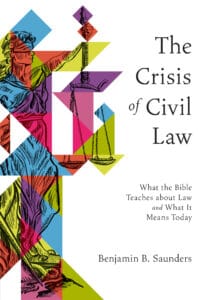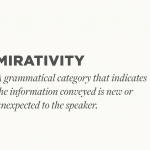
In this excerpt from The Crisis of Civil Law: What the Bible Teaches about Law and What It Means Today, Benjamin B. Saunders addresses the complicated question of what God’s will is for modern civil law.
What is the scope of the civil ruler’s role in making laws? First, it is important to appreciate the distinction between the prescriptive and the providential will of God. Based on passages such as Deuteronomy 29:29, theologians have drawn a distinction between the prescriptive, or preceptive, will of God (the revealed requirements of the moral law that God’s people are expected to obey) and his providential or decretive will (God’s secret will whereby he ordains all that comes to pass). For the most part, when thinking about law and civil government, Christians are accustomed to think in prescriptive terms: What would a biblically faithful form of civil government look like? What laws should a ruler enact to be faithful to Scripture?
However, the Bible does not answer this question in comprehensive detail. The overwhelming view of the Christian tradition is that the Bible outlines the moral principles and standards that apply to all people at all times, but it does not lay out a detailed blueprint for what a biblically faithful form of civil government would look like, or a comprehensive code for civil law.
Further, while it is true that God wills preceptively that all people obey his moral law, God does not will decretively that all people will do so. This means that the tasks of governing and lawmaking take place in the messy reality of a sinful world. As I will argue below, it is necessary for civil governments and civil laws to take account of fallen and sinful people, and so an ideally perfect form of civil law is an illusion. This complicates the question of what God’s will is for modern civil law.
It is nevertheless true that the Bible does have much to say that is relevant. Some of this teaching has been explored in earlier chapters. The Old Testament outlines the moral law and applies those principles within the specific context of the Israelite nation in books such as Leviticus and Deuteronomy. In so doing, it both gives a perfect example of how to apply the unchanging principles of the moral law within a specific context and further fleshes out the logic of the law. The New Testament further expounds and amplifies the principles of the moral law, including by exposing the inward nature of the law.
The few passages in the New Testament that address the civil ruler are tantalizingly brief and are in providential rather than preceptive terms. That is, the New Testament writers assume that the rulers that exist have been placed there by God, and they are much more concerned with ensuring a godly personal response from Christians than with telling rulers how to enact laws. As an example, when told about Pilate’s slaughter of Galilean worshipers, Jesus did not waste a single word condemning the injustice but rather warned his hearers to repent, lest they also perish (Luke 13:1–3).
In Romans 13—the classic New Testament passage regarding the civil ruler—Paul describes the civil ruler as “God’s servant for your good” and as “an avenger who carries out God’s wrath on the wrongdoer” (Rom 13:4), which suggests something of the core function of the civil government. However, Paul’s point in this chapter is not to define the proper limits of the ruler’s function, but to commend him as a servant of God and command the Christian to submit to his authority (Rom 13:1–7). Christians are to make prayers and supplications “for kings and all who are in high positions, that we may lead a peaceful and quiet life, godly and dignified in every way” (1 Tim 2:1–2). When asked whether it was lawful to pay taxes to Caesar, Jesus famously replied: “Render to Caesar the things that are Caesar’s, and to God the things that are God’s” (Matt 22:15–22; Mark 12:13–17; Luke 20:20–26).
The Bible outlines in detail the moral principles to which we are subject and contains many principles which are relevant to civil law, but it does not comprehensively explain what a biblically faithful form of civil government would look like, or what laws civil rulers should enact. As this book has emphasized, Scripture leaves considerable room for wisdom in deciding these matters. The Bible contains many principles of law and morality which remain applicable today; it tells us some of the things civil rulers should not do (such as allow oppression or injustice), and it gives an example of a legal system in a particular context (the Mosaic law). However, it is not an exhaustive blueprint for civil law for all time.
Of course, this is not to suggest that there is anything deficient in the Bible or the Mosaic law. Theologians have often described the Mosaic law as an adaptation of the principles of natural law to the polity of Israel. It is simply to say that it is not, and was never intended to be, an exhaustive blueprint for the laws of every human society throughout history.
This post was adapted from The Crisis of Civil Law: What the Bible Teaches about Law and What It Means Today by Benjamin B. Saunders (Lexham Press, 2024).







